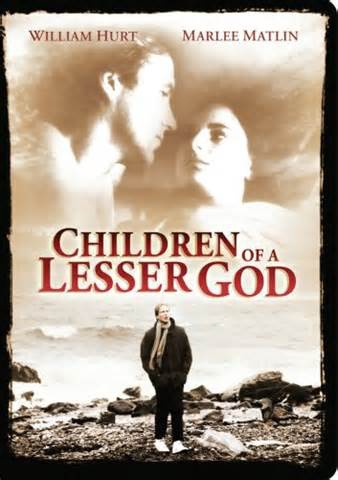pa- father
patristics
papa
ma- mother
mama
madam
rubbish NOUN
things that you throw away because they are no longer useful, such as old food,paper or plastic used for wrapping things, and empty containers
That's rubbish 胡說八道
domestic ADJECTIVE
relating to people's homes and family life
You are such a snob. 你真是勢力鬼。
Don't wish too well, it might come true.
Richard Cory by Edwin Arlington Robinson

MOVIE:
Children of a Lesser God

單字:
1.Sphere (n.) [sfɪr]
an area of activity, influence or interest; a particular section of society
e.g. Women have often been excluded from positions of power in the public sphere.
2. Gallop (v.) [ˋgæləp]
if a horse gallops, it moves very fast with all its feet leaving the ground together
e.g. A neighbour's horse came galloping down the road, riderless.
3. Agonize (v.) [ˋægə͵naɪz]
to think about a difficult decision very carefully and with a lot of effort
e.g. All the way home she agonized about what she should do.
4. Distraught (a.) [dɪˋstrɔt]
so upset and worried that you cannot think clearly
e.g. Relatives are tonight comforting the distraught parents.
5. Consolidate (v.) [kənˋsɑlə͵det]
to make a position of power or success stronger so that it is more likely to continue
e.g. The team consolidated their lead with a third goal.
6. Beseech (v.) [bɪˋsitʃ]
to eagerly and anxiously ask someone for something
e.g. He besought the judge to show mercy.
7. Blemish (n.) [ˋblɛmɪʃ]
a small mark, especially a mark on someone's skin or on the surface of an object, that spoils its appearance
e.g. The wine glasses were sold at half price because of blemishes in the crystal.
8. Exquisite (a.) [ˋɛkskwɪzɪt]
extremely beautiful and very delicately made
e.g. She bought an exquisite china figurine.
9. Lust (n.) [lʌst]
a strong feeling of wanting to have sex;great enthusiasm for something
e.g. It was lust to the eyes.
10. Tiller (n.) [ˈtɪlər]
a long handle at the back of a boat that is used for controlling the direction that the boat moves in
e.g. Cain was a tiller of the soil.
11. Thistle (n.) [ˈθɪs(ə)l]:a wild plant with a thick round purple or white flower and leaves with sharp points
e.g. Thorn and thistle shall it sprout for you.
12. Firstling (n.) [ˈfɝstlɪŋ]
the first agricultural produce or animal offspring of a season
e.g. And Abel too hard brought from the choice firstlings.
13. Allegiance (n.) [əˋlidʒəns]
an allegiance is a duty of fidelity said to be owed by a subject or a citizen to his or her state or sovereign
e.g. He is trying to win the allegiance of the masses.
14. Outpost (n.) [ˋaʊt͵post]
a group of buildings in a place far from cities or towns, usually established as a military camp or a place for trade
e.g. They established the first outposts and settlements.
15. Rigid (a.) [ˋrɪdʒɪd]
rigid methods, systems etc are very strict and difficult to change
e.g. Rigid and authoritarian methods of education.
16. Morality (n.) [məˋrælətɪ]
morality is the differentiation among intentions, decisions, and actions between those that are good and bad. A moral code is a system of morality and a moral is any one practice or teaching within a moral code
e.g. He is a man of strict morality.
17. Aristocratic (a.) [͵ærɪstəˋkrætɪk]
belonging to or typical of the aristocracy
e.g. He had an aristocratic bearing.
18. Arbitrary (a.) [ˋɑrbə͵trɛrɪ]
based on individual discretion or judgment; not based on any objective distinction, perhaps even made at random
e.g. The decision to use 18 years as the legal age of adulthood was arbitrary, as both age 17 and 19 were reasonable alternatives.
19. Sublime (a.) [səˋblaɪm]
something that is sublime is so good or beautiful that it affects you deeply
e.g. Her songs are a sublime fusion of pop and Brazilian music.
20. Chasm (n.) [ˋkæzəm]
a very deep space between two areas of rock or ice, especially one that is dangerous
e.g. A rope bridge across the chasm.
21. Synthesis (n.) [ˋsɪnθəsɪs]
in general, the noun synthesis refers to a combination of two or more entities that together form something new. The corresponding verb, to synthesize, means to make or form a synthesis
e.g. A synthesis of Eastern and Western philosophical ideas.
22. Implicit (a.) [ɪmˋplɪsɪt]
suggested or understood without being stated directly
e.g. Her words contained an implicit threat.
23. Incidentally (adv.) [͵ɪnsəˋdɛnt!]
used to add more information to what you have just said, or to introduce a new subject that you have just thought of
e.g. The wine, incidentally, goes very well with a mature cheese.
24. Subsequent (a.) [ˋsʌbsɪ͵kwɛnt]
following in time; coming or being after something else at any time, indefinitely
e.g. Growth was dampened by a softening of the global economy in 2001, but picked up in the subsequent years due to strong growth in China.
25. Interfere (v.) [͵ɪntɚˋfɪr]
to get involved or involve oneself, causing disturbance
e.g. I always try not to interfere with other people’s personal affairs.


 留言列表
留言列表


